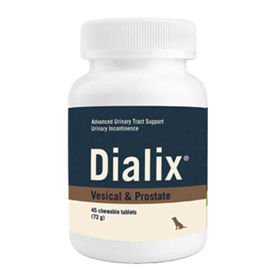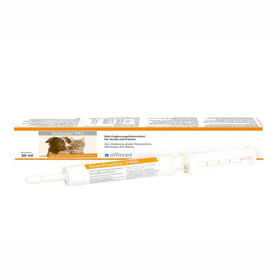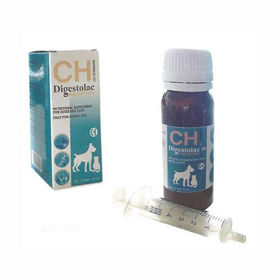Customer question:
What causes incontinence in a dog? Anonymous customer's question
Pharmacist's answer:
This condition has various causes, which include:
- Hormonal changes: hormone-dependent urinary incontinence caused by a decrease in estrogen levels is common in older spayed females. Estrogen helps maintain the muscle tone of the urethra, so its deficiency can lead to weakened muscle tone and, as a result, urine leakage.
- Urinary tract infections: Bacterial infections of the bladder or urethra can cause irritation and inflammation, leading to frequent and involuntary urine leakage.
- Neurological disorders: Spinal injuries, herniated discs, or diseases such as degenerative myelopathy or discospondylitis can affect the bladder's nerves and cause incontinence.
- Congenital Abnormalities: Some dogs have congenital abnormalities such as an ectopic ureter, where the ureters connect incorrectly to the urethra or vagina instead of the bladder, leading to constant leakage of urine.
- Age: older dogs often have weakened muscle tone and reduced tissue elasticity, which can lead to incontinence. Aging also increases the risk of developing bladder and urinary tract diseases.
- Bladder or urethral problems: Tumors, stones in the bladder or urethra, and other obstructions can affect the normal functioning of the bladder and cause urine leakage.
- Injuries: Injuries to the pelvic floor, as a result of trauma or surgery, can affect the function of the muscles and nerves that control the bladder.
- Diabetes: Dogs with diabetes are prone to increased thirst and urination, which can lead to incontinence.
- Kidney disease: Chronic kidney disease can affect the kidneys' ability to concentrate urine, resulting in increased urination and possible incontinence.
How to help a dog with incontinence?
See your vet to determine the cause of the incontinence. The vet will perform a thorough examination, including a urinalysis and possibly other diagnostic tests, to determine the underlying problem. Treatment will depend on the cause of the incontinence. For example, hormone-dependent incontinence in spayed females is often treated with hormone therapy, while urinary tract infections are treated with antibiotics. Neurological disorders or other diseases may require specific treatment or surgery. Your vet can prescribe medication to help manage the symptoms of incontinence.
Sometimes, the vet may recommend nutritional supplements to support urinary tract and bladder health. Make sure to change diapers regularly or use incontinence aids to keep your dog clean and comfortable. Adjust the dog's environment so that it is easier to access the toilet. For example, you can give the dog easy access to the outdoor area or place urinating aids in the house.
Visit the veterinarian regularly to monitor the condition and adjust the therapy according to the dog's needs. Incontinence can also affect the dog psychologically. Provide him with loving support and comfort to reduce stress and anxiety. In dogs with incontinence, lifestyle changes such as dietary adjustments, weight control, and regular exercise can help support overall health.
Interesting reading: What is incontinence?
Interesting reading: Urgent incontinence forum












 Facebook
Facebook
 Instagram
Instagram
 info@moja-lekarna.com
info@moja-lekarna.com

